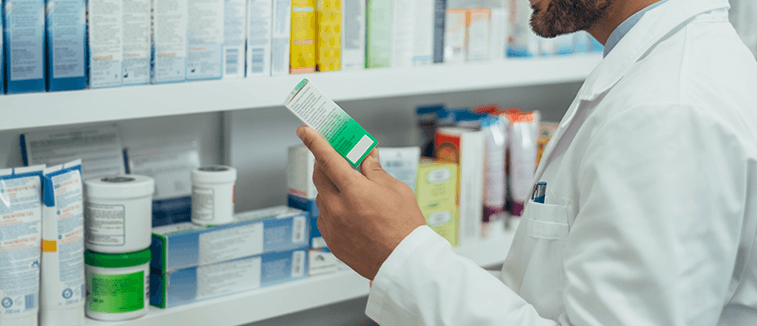Retail Pharmacist
On this page
- What's it like to be a Retail Pharmacist?
- How to become a Retail Pharmacist
- Latest Retail Pharmacist jobs
- Top skills and experience for Retail Pharmacists
What's it like to be a Retail Pharmacist?
Retail Pharmacists ensure the safe and effective distribution of medications and provide valuable healthcare information. They deliver important healthcare services and medicinal products while following regulations and maintaining a high level of professionalism. Retail Pharmacists typically work in community pharmacies located in shopping centres, or within healthcare facilities.

Tasks and duties
- Dispensing to individuals the proper usage of the medications provided by the healthcare professionals. This includes checking the medication's accuracy, dose, and usage directions.
- Following accepted standards and recommendations when participating in medication synchronisation programs such as vaccines, flu shots, and other immunisations.
- Managing the inventory of the pharmacy, such as ordering, receiving, and stocking pharmaceuticals, and monitoring expiration dates.
- Providing great customer service by professionally and courteously responding to patient queries, concerns, and medication-related inquiries including identifying cost-effective alternatives and assisting with insurance claims.
- Keeping up to date on the newest innovations in pharmacy practice, new drugs, and healthcare issues through continuous education and professional development.
Retail Pharmacists may provide medication counselling to patients, including potential side effects, drug interactions, and the importance of following prescription schedules. Retail Pharmacists interact with other healthcare professionals, such as physicians and nurses, to ensure efficient patient care and to resolve medication-related challenges.
How to become a Retail Pharmacist
To become a Retail Pharmacist in Singapore you’re required to complete a degree in pharmacy and follow a specific licensure path.
- 1.
Complete a Bachelor of Pharmacy (BPharm) or Doctor of Pharmacy (Pharm.D.) program or courses in pharmacology, pharmaceutical chemistry, pharmacy practice, and clinical rotations.
- 2.
Begin your career with entry-level jobs in retail or community pharmacies, such as staff Pharmacist positions that dispense drugs, counsel patients, and manage inventory.
- 3.
Obtain specialised certifications in areas such as immunisation, and pharmaceutical therapy management. These credentials can help improve your qualifications and work opportunities.